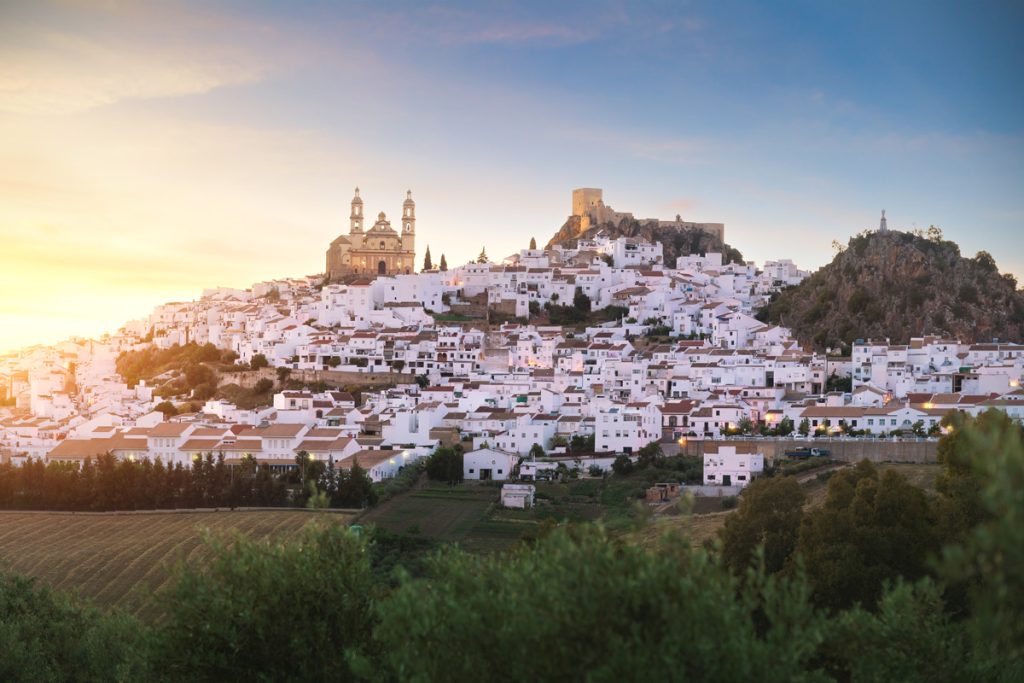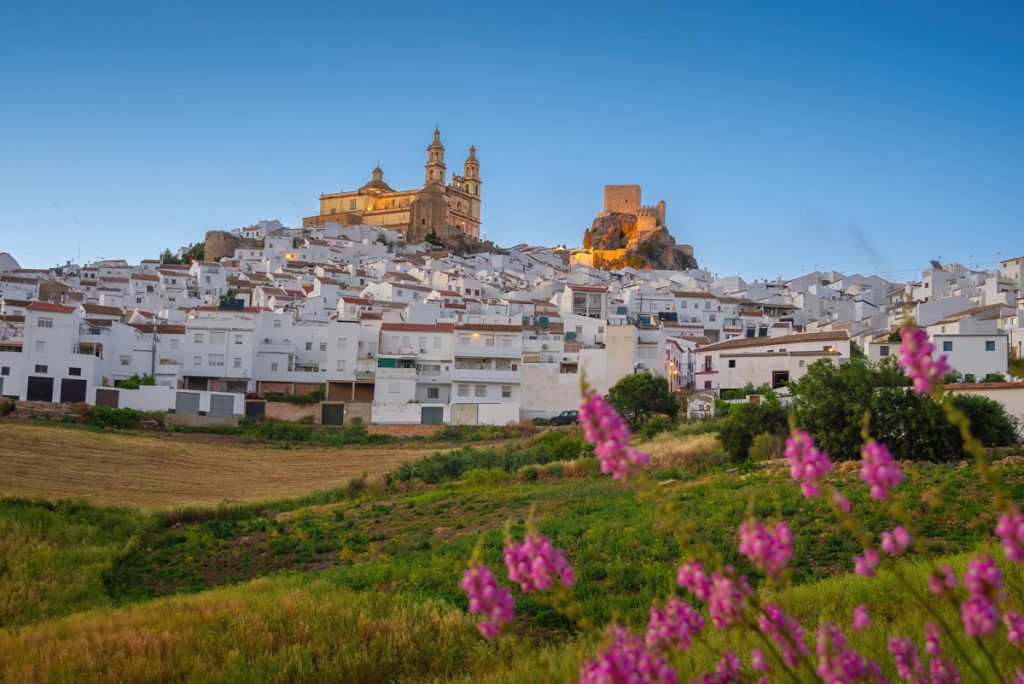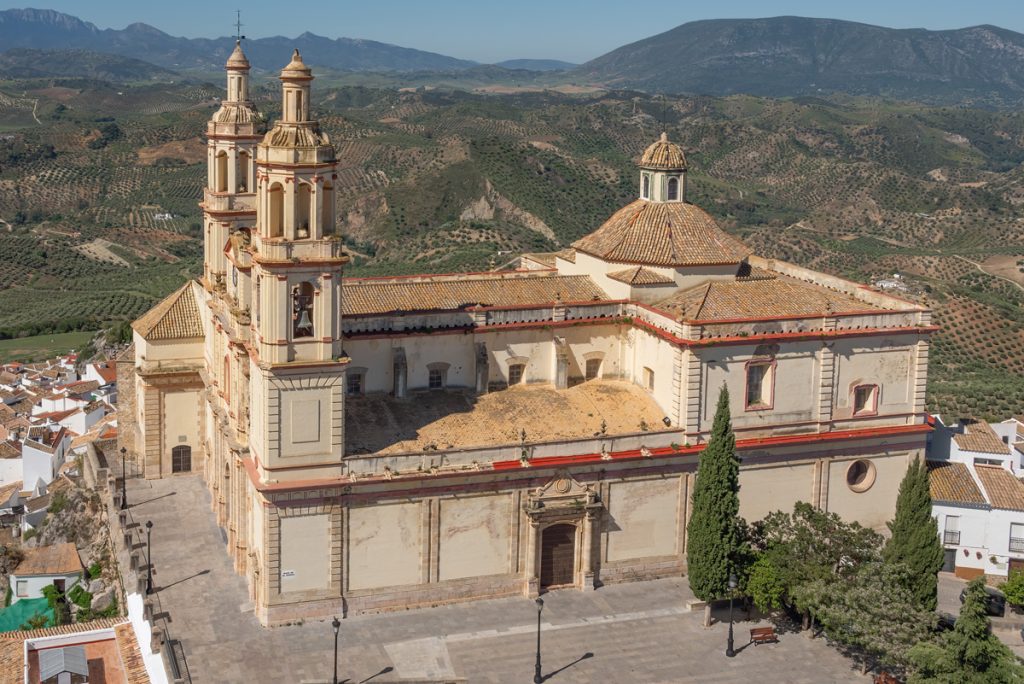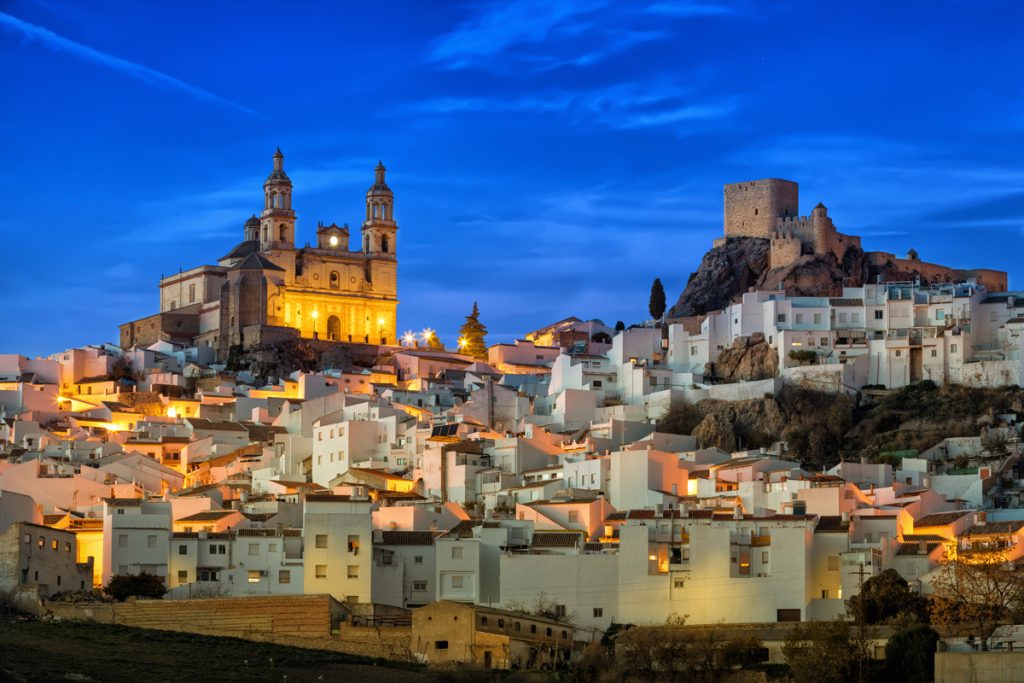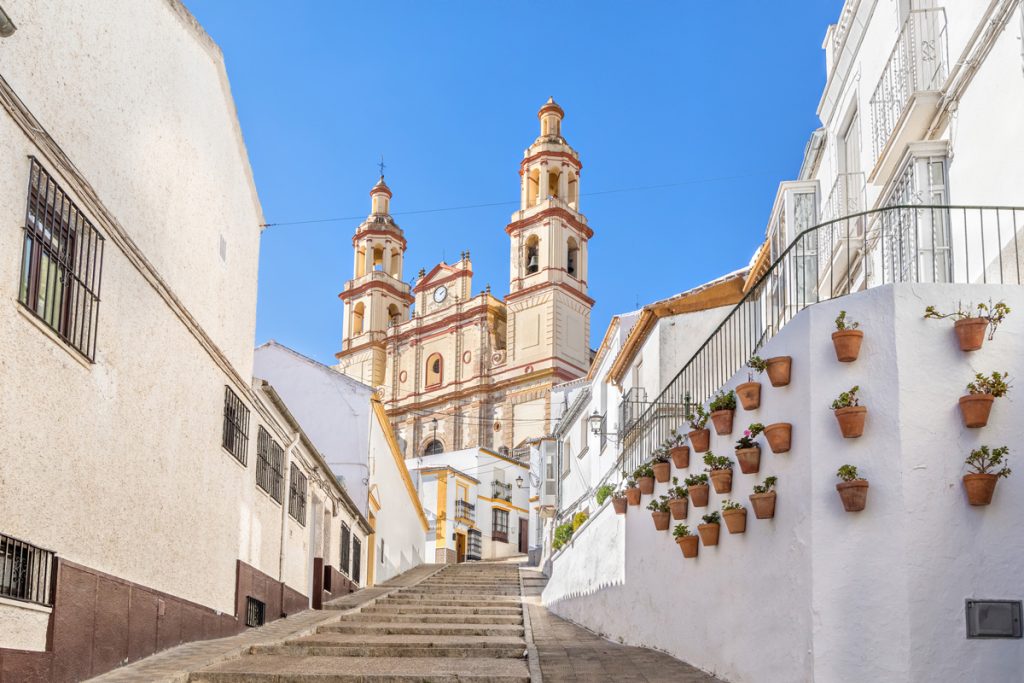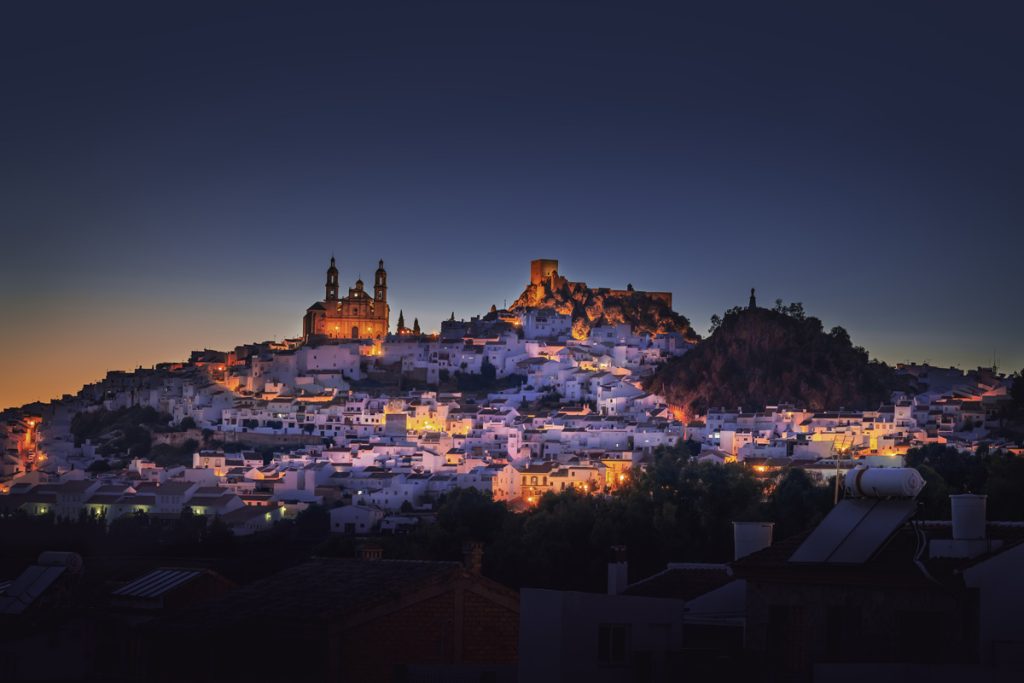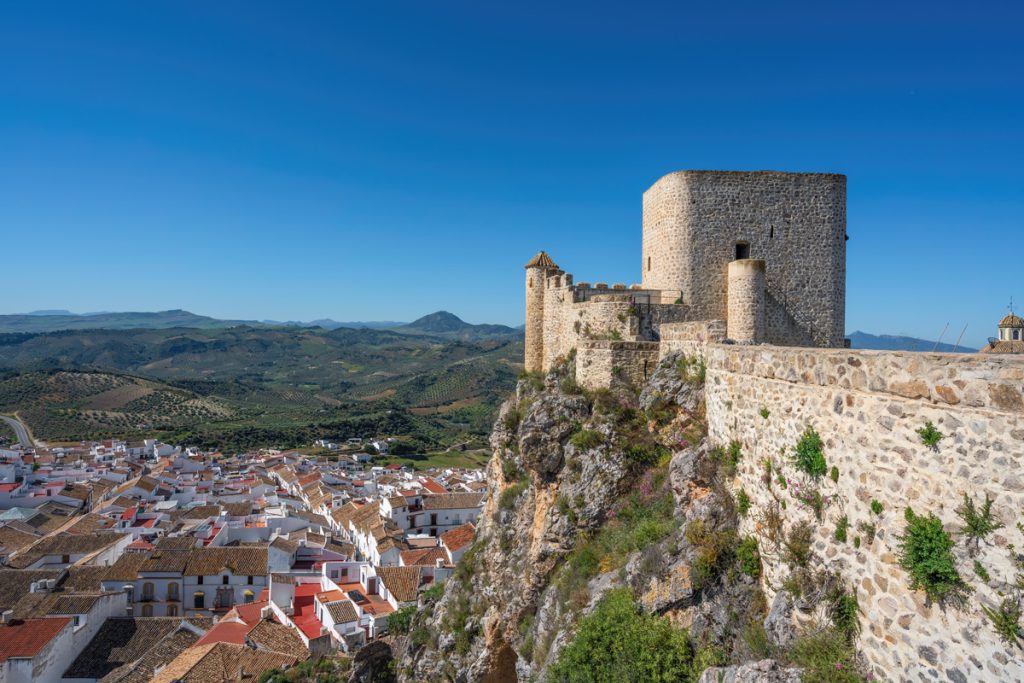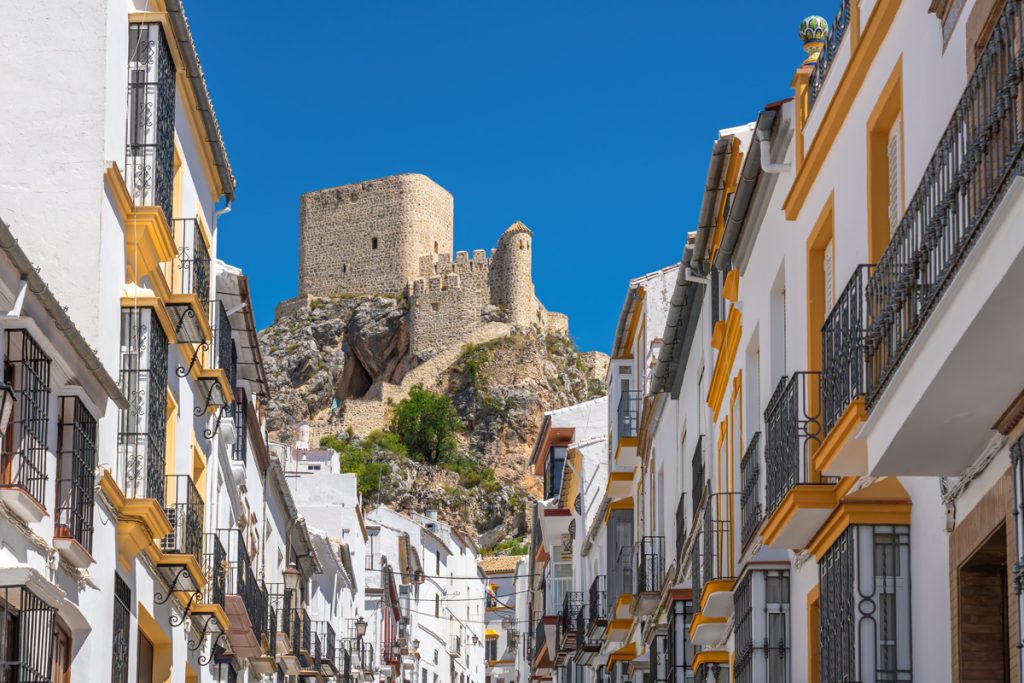Olvera boasts a history that dates back to ancient times, with evidence of human settlements in the area since prehistoric eras. Its strategic location between the plains and the mountains made it a sought-after site for various civilizations throughout history, including the Romans, Moors, and Christians. Each group left its mark, contributing to the town’s unique cultural heritage and architectural blend.
One of the town’s most iconic landmarks is the Olvera Castle (Castillo de Olvera), perched high on a hill and offering breathtaking views of the surrounding countryside. The castle played a crucial role in the region’s defense during numerous conflicts, and today, its well-preserved structure stands as a testament to the town’s turbulent past.
Charming Architecture:
As visitors wander through the charming streets of Olvera, they’ll be greeted by a blend of architectural styles that showcases the town’s historical evolution. From narrow cobblestone alleys and whitewashed houses adorned with colorful flower pots to grand churches and ancient watchtowers, the architecture in Olvera reflects a unique blend of Moorish, Baroque, and Renaissance influences.
The Iglesia Parroquial de Nuestra Señora de la Encarnación, a beautiful church with a distinctive Baroque facade, stands as a symbol of religious devotion and architectural excellence. It houses numerous religious artworks and artifacts that further add to the town’s cultural wealth.
El Via Verde de la Sierra:
Beyond its historical charm, Olvera offers a treat for nature enthusiasts through the “Via Verde de la Sierra” or “Green Route of the Sierra.” This old railway track, which once connected the town to nearby municipalities, has been converted into a scenic hiking and cycling trail. The route takes visitors on a journey through olive groves, limestone cliffs, and verdant landscapes, offering a wonderful opportunity to connect with nature and relish the tranquility of the Andalusian countryside.
Festivals and Traditions:
Olvera comes alive during its various festivals and celebrations, providing a glimpse into the town’s vibrant cultural heritage. The Holy Week (Semana Santa) is a particularly significant event, where the streets fill with processions, music, and religious fervor. The Feria de Olvera, held in August, is another notable occasion featuring colorful parades, traditional dances, and local gastronomic delights.
Gastronomy:
No visit to Olvera is complete without savoring the delectable local cuisine. As part of the region famous for its olive oil production, Olvera offers a wide range of dishes incorporating this golden elixir. From mouthwatering tapas to hearty stews and grilled meats, the town’s culinary offerings are a delightful exploration of the flavors of Andalusia.
Hospitality and Warmth:
One of Olvera’s most endearing qualities is the hospitality and warmth of its residents. Visitors will find themselves welcomed with open arms, and the locals’ genuine friendliness adds an extra layer of charm to the overall experience.
Conclusion:
Olvera in Cádiz, Spain, is a treasure trove of history, culture, and natural beauty. With its ancient castle, enchanting architecture, captivating festivals, and warm hospitality, Olvera invites travelers to step back in time and immerse themselves in the soul-stirring allure of Andalusia. Whether exploring its historical landmarks, strolling through its charming streets, or enjoying the tranquility of its natural surroundings, a visit to Olvera promises an unforgettable experience that will linger in the hearts of travelers for years to come.

